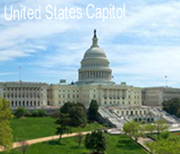FREE NEWS LINKS

HOME SEARCH
Updates & changes ongoing ....
---- Although this site is https-secure, we cannot guarantee that it or any provided links are safe; be sure your antivirus and other security systems are up to date.
Also see: Donations; political contributions;
Undated: In the United States and Canada, a political action committee (PAC) is a 527 organization that pools campaign contributions from members and donates those funds to campaigns for or against candidates, ballot initiatives, or legislation.[1][2] The legal term PAC has been created in pursuit of campaign finance reform in the United States. This term is quite specific to all activities of campaign finance in the United States. Democracies of other countries use different terms for the units of campaign spending or spending on political competition (see political finance). At the U.S. federal level, an organization becomes a PAC when it receives or spends more than $1,000 for the purpose of influencing a federal election, and registers with the Federal Election Commission, according to the Federal Election Campaign Act as amended by the Bipartisan Campaign Reform Act of 2002 (also known as the McCain-Feingold Act).[3] At the state level, an organization becomes a PAC according to the state's election laws.
Contributions from corporate or labor union treasuries are illegal, though they may sponsor a PAC and provide financial support for its administration and fundraising. Union-affiliated PACs may only solicit contributions from members. Independent PACs may solicit contributions from the general public and must pay their own costs from those funds.
https://en.wikipedia.org/wiki/Political_action_committee
Undated: Super PACs, officially known as "independent-expenditure only committees", may not make contributions to candidate campaigns or parties, but may engage in unlimited political spending independently of the campaigns. Unlike traditional PACs, they can raise funds from individuals, corporations, unions, and other groups without any legal limit on donation size.[19]
Super PACs were made possible by two judicial decisions: the aforementioned Citizens United v. Federal Election Commission and, two months later, Speechnow.org v. FEC. In Speechnow.org, the federal Court of Appeals for the D.C. Circuit held that PACs that did not make contributions to candidates, parties, or other PACs could accept unlimited contributions from individuals, unions, and corporations (both for profit and not-for-profit) for the purpose of making independent expenditures.
The term "Super PAC" was coined by reporter Eliza Newlin Carney.[23] According to Politico, Carney, a staff writer covering lobbying and influence for CQ Roll Call, "made the first identifiable, published reference to 'super PAC' as it's known today while working at National Journal, writing on June 26, 2010, of a group called Workers' Voices, that it was a kind of "'super PAC' that could become increasingly popular in the post-Citizens United world."[24]
According to FEC advisories, Super PACs are not allowed to coordinate directly with candidates or political parties. This restriction is intended to prevent them from operating campaigns that complement or parallel those of the candidates they support or engaging in negotiations that could result in quid pro quo bargaining between donors to the PAC and the candidate or officeholder. However, it is legal for candidates and Super PAC managers to discuss campaign strategy and tactics through the media.[25][26]
The Center for Responsive Politics maintains a list of the largest PACs by election cycle on its website OpenSecrets.org.[44] Their list can be filtered by receipts or different types of expenses, political party, and type of PAC.
https://en.wikipedia.org/wiki/Political_action_committee#Super_PACs
Webpage visitor counts provided by